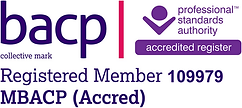As a counsellor, I believe it’s crucial to have an understanding of anxiety disorders. These conditions affect millions of people worldwide and can significantly impact quality of life if left untreated. Let’s consider five essential facts about anxiety disorders that everyone should know.
- Anxiety Disorders Are Common and Varied: Anxiety disorders are not uncommon; in fact, they are among the most prevalent mental health conditions globally. They encompass a range of disorders, including generalized anxiety disorder (GAD), panic disorder, social anxiety disorder, phobias, and more. Each type of anxiety disorder has its unique characteristics and symptoms, but they all share a common thread of excessive fear, worry, and apprehension that can interfere with daily life.
- Symptoms Extend Beyond Everyday Stress: While it’s normal to experience stress and anxiety in response to life’s challenges, anxiety disorders involve persistent and overwhelming feelings of unease that go beyond typical stressors. Individuals with anxiety disorders may experience physical symptoms such as rapid heart rate, sweating, trembling, difficulty breathing, digestive issues, and muscle tension. These symptoms can be debilitating and may lead to avoidance behaviours that exacerbate the anxiety over time.
- Anxiety Disorders Are Treatable: The good news is that anxiety disorders are highly treatable with the right approach. Treatment strategies often include therapy, medication, or a combination of both, depending on the individual’s needs and preferences. Cognitive-behavioural therapy (CBT) is particularly effective for many anxiety disorders as it helps individuals identify and challenge negative thought patterns and develop coping strategies to manage anxiety more effectively. Anxiety can also be a symptom of trauma.
- Early Intervention Is Key: Early intervention plays a crucial role in managing anxiety disorders and preventing them from escalating. Unfortunately, many people delay seeking help due to stigma, misconceptions, or fear of judgment. It’s important to recognise that seeking support from a mental health professional is a sign of strength, not weakness. The sooner individuals reach out for help, the sooner they can start the journey toward improved mental well-being.
- Self-Care and Lifestyle Changes Can Make a Difference: In addition to professional treatment, self-care practices and lifestyle changes can significantly impact anxiety levels. Engaging in regular exercise, practicing relaxation techniques such as deep breathing or meditation, maintaining a healthy diet, getting adequate sleep, and reducing alcohol and caffeine intake can all contribute to managing anxiety symptoms. Building a strong support network of friends, family, or support groups can also provide valuable emotional support.
In conclusion, understanding anxiety disorders is crucial for promoting mental health awareness and fostering a supportive environment for those affected by these conditions. By recognising the signs, seeking timely intervention, and implementing healthy coping strategies, individuals can effectively manage anxiety disorders and lead fulfilling lives. Remember, you are not alone, and help is available for those who reach out.
If you are trying to manage anxiety in your daily life, or you know someone close to you who is. Reaching out to a counsellor may be the first step to freedom. Stay informed, stay empowered, and prioritise your mental well-being.
Get in touch for more information or to book a free initial 20 minute telephone conversation. www.julieleetherapy.org.







